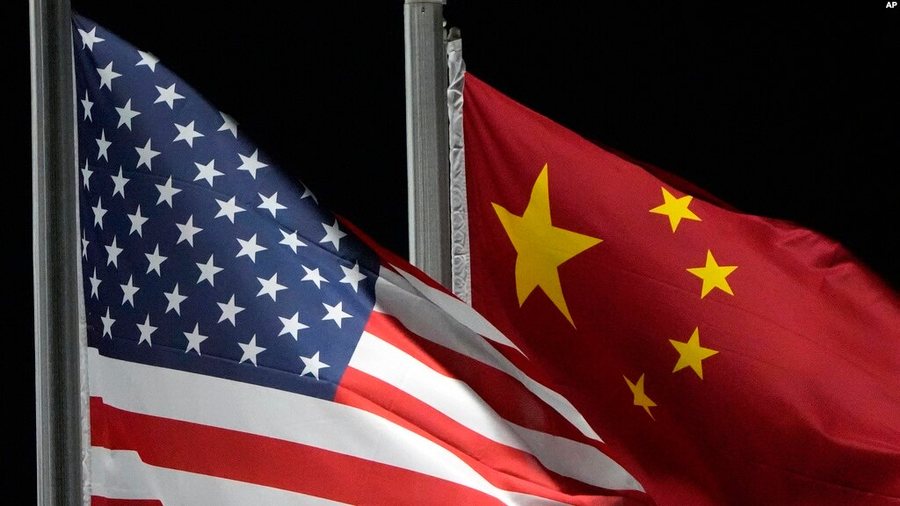
The US State Department, on its website, where it provides key facts about China, has replaced the abbreviation 'PRC' that referred to the official name of the state, the People's Republic of China, with the name China.
Former President Joe Biden's administration regularly referred to the government in Beijing by the abbreviation 'PRC.' Since former President Richard Nixon began the process of normalizing relations with Beijing — which ended recognition of the government in Taipei, officially known as the Republic of China, on January 1, 1979 — the U.S. government has maintained diplomatic relations with the Communist Party-led government in Beijing while downgrading relations with Taiwan to an informal but friendly relationship.
"Taipei should take comfort in the fact that the name change (from PRC to China) does not represent a change in U.S. policy. In fact, the United States still adheres to the 'One China' stance, under which it maintains diplomatic relations with Beijing and strong, unofficial relations with Taipei," Russell Hsiao, executive director of the Taiwan Global Institute, told VOA.
"Since 1979, Washington has recognized the government in Beijing of the People's Republic of China as the sole legitimate government of China, so this name change is essentially another way of presenting the same facts, which have not changed," says analyst Hsiao, according to A2.
China considers Taiwan a renegade province. In 1949, Chinese Nationalist forces, supported by the United States and led by Chiang Kai-shek, fled mainland China for Taiwan after losing a civil war against communist forces led by Mao Zedong. Chiang ruled Taiwan until his death in 1975. Meanwhile, Mao ruled mainland China as a harsh authoritarian leader until his death, a year after Chiang's death.
Washington still continues to provide weapons to Taipei and has left open the question of whether the United States would militarily defend the island of Taiwan if it were attacked by China. The Taiwan Relations Act obliges the United States to help Taiwan defend itself, but the final decision on military intervention rests with the President and Congress.
The language changes the State Department made last week removed the reference that Washington does not support Taiwan independence, but what remained unchanged is the content that states that the United States opposes "unilateral changes to the current status quo" by any party on either side of the Taiwan Strait.
However, another significant change to the State Department's China website is the removal of text that talks about cooperating with allies on China-related issues, as well as the removal of text about helping Beijing on cultural and environmental issues. It has been replaced by new text that focuses on the trade relationship between the United States and China, highlighting the difficulties faced by American businesses operating in China and assessing that the Chinese economy is "one of the most restrictive investment environments in the world."
Another change in stance, in line with the rhetoric used by President Donald Trump's administration, is reflected in the constant reference to the Chinese Communist Party.
This party has been directly accused of trying to "manipulate and destabilize" United Nations organizations and other international bodies and of trying to "prepare and place its members at the head of these groups, or in other positions."
In the new document, the Chinese Communist Party is also held responsible for "malicious cyber activity against the United States government, private sector, and critical infrastructure networks."
The document notes that the United States is committed to combating such activities "to help American citizens, businesses, and industries."
"These moves reflect a general 'sense' in Washington and President Trump's administration that engagement with China has failed and that a tougher approach is now required," Rorry Daniels, director of the Asia Society Policy Institute, told VOA.
“This approach has been felt, especially in Congress, for years, so the changes are not unexpected. However, replacing the People’s Republic of China with the term China reflects a more dangerous approach that strikes at the legitimacy of the Communist Party of China as the ruling authority of China. I expect this to be viewed with great concern by Beijing and raised as an issue at the highest levels, in the days and weeks ahead,” Ms. Daniels added.
Chinese Foreign Ministry spokesman Guo Jiakun, responding to reporters during the weekly briefing, expressed deep dissatisfaction over the changes to the website.
The State Department's actions "misrepresent the facts, undermine China's foreign policy, and fuel the so-called China-US strategic competition. We strongly regret and resolutely oppose it," Mr. Guo said.
The changes come as President Trump has imposed additional 10 percent tariffs on all products imported from China. The president has said he took the action after the Beijing government failed to stop fentanyl from entering the United States.
President Trump has also announced that he intends to impose further tariffs on all trading partners that restrict the penetration of American goods into their markets./ Voice of America (A2 Televizion)











